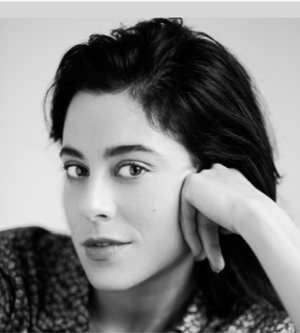Healing words
Unity of mind and body. How emotions affect our organism
It is by now well known that exposure to figurative art, music, nature, architecture and storytelling, as well as having neurotrophic effects on various parts of the brain and improving psychological well-being, produces benefits for physical health, extending life expectancy and reducing the risk of serious degenerative disease such as Alzheimer's and cancer. Such health benefits would be neither comprehensible nor plausible if we were unable to accept the unity of mind and body.
From Descartes onwards, the body became the domain of medicine and biology and, subsequently, psychic manifestations not yet understood or explored by medicine became the domain of psychology. This dualism still dominates the structure of the medical curriculum today. That is not how things are in reality, however, and science provides much evidence for the influence of positive emotions on physical and also mental health. Medicine must therefore reappropriate the concept, well-known to the founding fathers of this science, of an unbreakable unity between mind and body.
After exploring the history of the split between psychology and medicine, the lesson will focus on the increasing scientific evidence for the unity of mind and body, perhaps the most important concept underlying the bio-psycho-social model. The "hegemonic" role of the brain in health and in illness can be discerned, for example, in the relationship between stress and many medical-clinical pathologies, in the brain’s control over the immune system. The evidence for the impact of the emotions on vital physiological parameters (pressure, heart rate, respiration) will also be explored, along with more recent evidence for the power of the brain over cancer processes.
Enzo Grossi
Medical doctor, lecturer and researcher
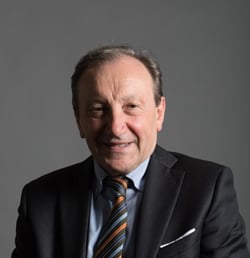
Roberto Malacrida
EOC Board of Directors, Fondazione Sasso Corbaro for Medical Humanities and chairman of the Clinical Ethics Commission for disability
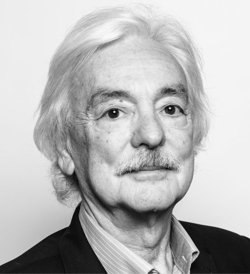
Giovanni Pedrazzini
Full Professor and Dean of the Faculty of Biomedical Sciences at USI and Head of the Cardiology Service at the Cardiocentro Ticino Institute
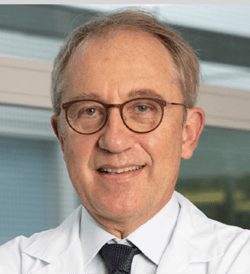
Reading by parents as a stimulus for neurodevelopment in children
For young children, reading together with parents and caregivers offers opportunities for wonderful warm language-rich interactions -- in the research literature, Positive Childhood Experiences (PCEs). Literacy promotion in pediatric primary care supports parents to enhance language exposure, encourage positive language-rich interactions around books and reading aloud, and help families build routines which can increase resiliency and provide positive experiences even in difficult circumstances, helping to mitigate adverse experiences and toxic stress.
This presentation covers strategies for developmentally appropriate use of books and dialogic reading counsel in pediatric care, and reviews the strong evidence base showing the Reach Out and Read model is associated with improvements in the home environment, with more positive attitudes toward books and reading, and with improved preschool language, and the evidence connecting positive childhood experiences with improved outcomes.
Perri Klass
Professor of Journalism & Pediatrics New York University; National Medical Director Reach Out & Read
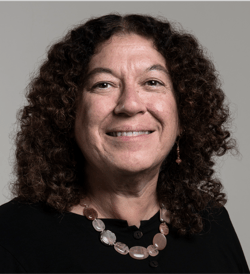
Oskar Jenni
Director, Child Development Center and Professor for Developmental Pediatrics at the University of Zurich
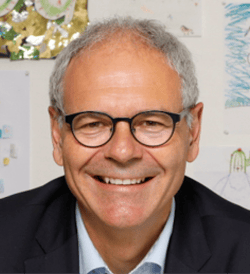
The value of reading in the prevention of frailty in people with mild cognitive impairment
The value of reading in the prevention of frailty in people with mild cognitive impairment: language as the result of a complex nervous activity that allows individuals to communicate mental states by the production of sounds and signs that symbolize these states in accordance with a linguistic community's own convention. Writing is a secondary code to spoken language; it is an organized system of symbols capable of fixing, communicating, preserving and transmitting mental procedures and linguistic expressions over time in stable forms.
Reading is the action of deciphering a written or printed text. Reading practice is an important cognitive stimulus; it is also an easy-to-use and low-cost cultural proposal.
The habit of reading books is low in the elderly population of middle or low educational level.
The talk will present an intervention program aimed at assessing the effects of combined reading and physical training in older people with mild cognitive impairment (MCI) and at investigating how their frailty status changed over one year of follow-up.
Maurizio Gallucci
Director of the Center for Cognitive Disorders and Dementia of the Local Health Authority (LHA2) Marca Trevigiana, Treviso, Italy
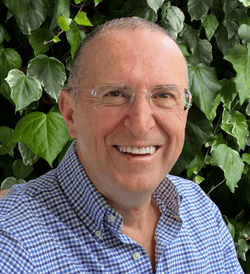
Antonio Malgaroli
Full Professor at the University Vita-Salute San Raffaele and USI
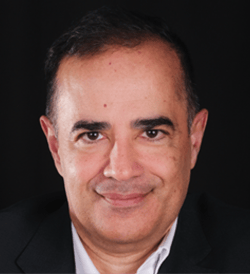
Expressive writing: an effective therapy
Expressive writing, a practice of writing down emotional experiences on paper, has been shown to yield benefits to our physical and mental health. Regardless of whether these experiences involve minor disagreements or major life upheavals, putting them into words helps us navigate and overcome these challenges. With a body of over 1400 scientific papers studying its potential, this talk will summarize key findings from various disciplines and demonstrate how this simple act of writing can induce transformative change in our lives.
When we articulate our personal struggles, we not only make sense of them but also find ways to move past them. Today, expressive writing is being used in psychotherapy, education, business, and serves as a therapeutic strategy for disorders like chronic pain and depression. Additionally, it has ignited breakthroughs in our understanding of everyday language and computer text analysis.
James Pennebaker
The University of Texas at Austin, Austin. Texas USA
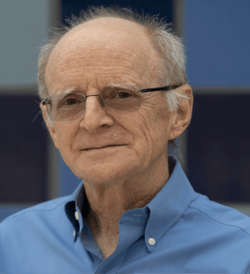
Marta Fadda
Institute of Public Health, Università della Svizzera italiana
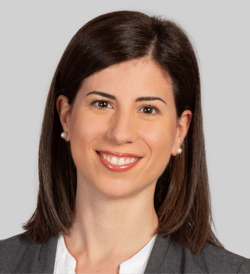
Narrative medicine for a new doctor-patient relationship
"Narrative medicine for a new doctor-patient relationship" will describe a radical future for health care. We have the chance to make genuine contact with our patients and their families. We need not be technicians dealing impersonally with persons' diseases. Instead, we can develop the capacities of deep listening, creative representation, and sturdy affiliation with our patients and our colleagues. Narrative medicine helps doctors to enter into the worlds of our patients and team-members.
Rita Charon
Medical Humanities and Ethics, Columbia Vagelos College of Physicians & Surgeons, New York, NY, USA
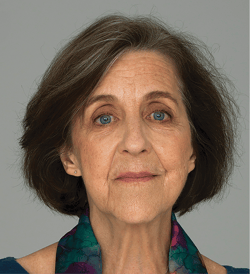
Pietro Majno-Hurst
Faculty of Biomedical Sciences, Università della Svizzera italiana (University of Italian Switzerland), Department of Surgery, Ente Ospedaliero Cantonale (Canton Hospital Organisation)
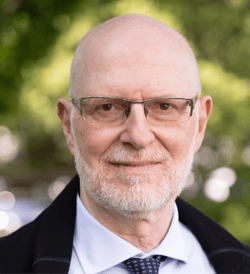
He worked in Geneva, participating and then leading the centre for hepatobiliary and pancreatic disease until in 2018 he was appointed as Professor of Surgery at USI and head of Surgery at the Ente Ospedaliero Cantonale. Prof. Majno-Hurst has published over 200 papers in leading medical journals. He is involved in environmental and social matters, which he considers inseparable from health issues.
In a study "Knowing each other for better care", we offered to patients candidates for major surgery the opportunity to introduce themselves with a short structured biography. The majority of Patients were grateful for the opportunity, and invested the Doctor with the role of "identity protector", improving the relationship of trust. We wondered why this tool had not been used before in a similar setting: probably
Digital Narratives: practices and challenges
Digital innovation has generated a significant expansion in the production and visibility of illness and care stories. The field of digital storytelling in healthcare encompasses a wide range of practices and tools, which are not always appropriately distinguished. This lesson will provide a mapping of digital narratives, enabling a better analysis of individual, clinical, and social impacts.
Digital narratives refer to the sharing, using digital tools, of stories, including multimedia, that involve personal experiences of prevention, illness, and care, both from patients and professionals.
Cristina Cenci
DNM, Digital Narrative Medicine, SIMeN (Italian Society of Narrative Medicine).
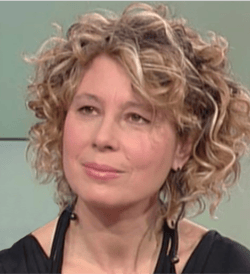
Maddalena Fiordelli
Institute of Public Health, Faculty of Biomedical Sciences, Università della Svizzera italiana
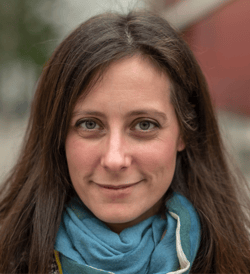
Dr. Maddalena Fiordelli, PhD, is a Senior Researcher and Lecturer at Università della Svizzera italiana's Institute of Public Health. Her research on health communication, multi-stakeholder collaboration, and digital health drives transformative advancements. She advances understanding of social isolation, supports informal caregivers, and explores the potential of digital tools in healthcare, contributing significantly to the field.
Theatre as a resource for individual well-being and social cohesion
The historian Ferdinando Taviani, summarising his career between theatre studies and field observation, has defined historical tales as 'facts of thought': necessary for research but to be tested by frequenting artists’ work. The so-called Social and Community Theatre can be fully considered a 'fact of thought' and if we listen to the artists, even the pioneers, we discover that their persuasion is inherent to theatre-making, without ever taking the place of those who have other functions (educators, psychologists, etc.).
Starting from some definitions, both of artistic and theatrical origin, between ‘facts of thought’ and the narration of some practices, we will try to draw a map in the present of the dimensions of theatre and its interactions with the social context.
Lorenzo Donati
Adjunct professor, Department of Biomedical and Neuromotor Sciences and Research fellow, Department of the Arts, University of Bologna
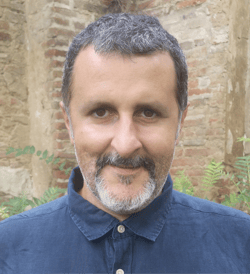
Mauro Manconi
Head of the Sleep Medicine Unit at Neurocenter of Southern Switzerland Regional Hospital of Lugano and Professor at Università della Svizzera Italiana and at University of Bern
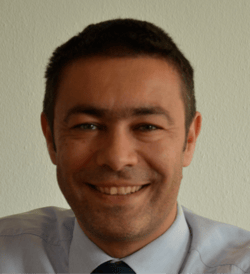
Medicine and Words: 7 monologues
Readings project by Carmelo Rifici
Dramaturgy by Riccardo Favaro
Consultancy by Roberto Malacrida
With Fausto Cabra, Giovanni Crippa, Federica Fracassi, Camilla Semino Favro, Mariangela Granelli, Igor Horvat, Anahì Traversi
"But I also know that in words we can find ourselves. That thanks to words we can give meaning and significance to what for a long time we believed had none. It is not words that change us or transform our existence. But it is we who, by coming across certain words, can make them an instrument of evolution, change, well-being." (Alberto Pellai, La vita si impara)
Seven encounters, seven monologues, seven actors. Carmelo Rifici, artistic director of LAC Lugano Arte e Cultura, proposes for the University Course in Culture and Health "Healing Words", a programme of readings of texts written by the playwright Riccardo Favaro, reworking the pages of literary authors and patients who, through words, narrate illness and death, as a remedy for re-elaborating a painful experience, finding meaning, difficult comfort, a form of liberation or, perhaps, acceptance.
Carmelo Rifici
A degree in Literature, he graduated from the School of the Stabile di Torino and is a director collaborating with Luca Ronconi in Progetto Domani and in the direction of several shows. As a director he signs dozens of works for Napoli Teatro Festival, Piccolo Teatro di Milano, INDA Siracusa, Teatro Due di Parma, Ponchielli di Cremona and Circuito Lirico Lombardo. Since 2014 he has been the artistic director of LuganoInScena, where he directs Anton Chekhov's Gabbiano, Rifici-Dematté's Iphigenia, liberata, Ariel Dorfman's Purgatorio, Rossini's Il barbiere di Siviglia, Angela Dematté's I had a nice red ball, Giorgio Battistelli's I Cenci, which in 2020 is on the billboard of Biennale Musica in Venice and the Festival Aperto in Reggio Emilia. In 2019 he will direct Puccini's Gianni Schicchi and Ravel's L'heure espagnole at the Teatro Grande in Brescia. From 2020 he is artistic director of LAC Lugano Arte e Cultura for which he signs project and direction of Macbeth, le cose nascoste, of which he is also author together with Dematté; Le relazioni pericolose, written with Livia Rossi; Verdi's La traviata directed by Markus Poschner; in November 2022, with Andrea De Rosa, Processo Galileo; in January 2023 for the Teatro Biondo in Palermo, Ulisse Artico. Since 2015, he has directed the "Luca Ronconi" Theatre School of the Piccolo Teatro in Milan. In 2005 he won the Premio della Critica as emerging director (2005), in 2009 the Premio Eti Olimpici del Teatro as director of the year, the Premio della Critica, the Golden Graal and he is in the nominations for the Premi Ubu as director of the year, the Premio Enriquez for the LuganoInScena theatre season (2015) and for the direction of Iphigenia, liberata (2017), the Prize awarded by the Italian Chamber of Commerce for Switzerland for his work at the LAC (2019). In 2021 he was awarded the title of Maestro by the Radicondoli Theatre Prize, the Hystrio Digital Stage Prize, and the Ubu Special Prize for the Lingua Madre digital project. Capsule for the future, conceived with Paola Tripoli. In 2022 he is among the finalists of the International Ivo Chiesa Prize - A life for theatre in the "School" category.
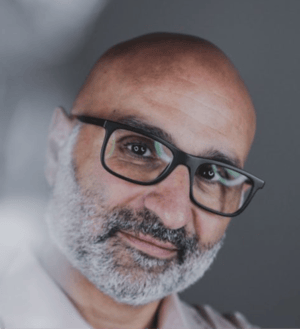
Riccardo Favaro
A playwright and writer, he was born in Treviso in 1994. After classical studies, he graduated as a playwright at the 'Paolo Grassi' School of Theatre in Milan. He is the author of numerous texts and rewrites, including Una Vera Tragedia (Premio Scenario 2019), Saul, Nastro 2 (Finalist Premio Riccione - Tondelli 2017), Analisi Logica (Official Selection Schweizer Theatertreffen 2022), Doppio Sogno, Lancelot and Ginevra, Dramma Industriale. Since 2017 he has been working alongside masters such as Carmelo Rifici and Giampiero Solari and young directors, including Giovanni Ortoleva and Fabio Condemi. Over the years his works have been produced and staged at the Piccolo Teatro in Milan, the LAC in Lugano, the Biennale Teatro in Venice, the Festival delle Colline Torinesi, the Festival del Teatro Antico in Syracuse, the Metastasio in Prato, the Festival del Teatro Popolare in San Miniato, the Teatro i in Milan and others.
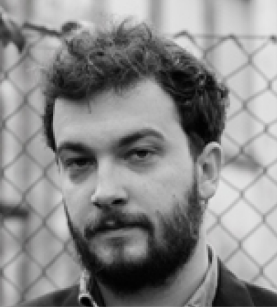
Fausto Cabra
Born in Brescia, after studying aerospace engineering in 2005 he graduated with Luca Ronconi at the Piccolo Theatre School in Milan, continuing his training at the École des Maîtres with Carlo Cecchi. At the Piccolo he was directed by Ronconi in many shows and worked with Declan Donnellan, Robert Carsen, and Giorgio Sangati. At the Teatro Stabile di Torino he worked, among others, with Walter Le Moli, Victor Arditti, Claudio Longhi, Mario Martone, Valerio Binasco. He collaborated for more than ten years with Ricci/forte and was the protagonist of many works at the Globe Theatre in Rome. At the CTB in Brescia he is directed by Giorgio Sangati, Andrea Chiodi, Elena Bucci, Marco Sgrosso, Daniele Salvo. He also works with Carlo Cecchi, Israel Horovitz, Giacomo Bisordi and with the independent companies PianoInBilico, Gli Incauti, Teatro Bresci. He directed Macbeth for Teatro Bresci and La Storia based on Elsa Morante's novel, Autoritratti, Evolution, Voci da dentro, Calma Musa for Teatro Stabile di Brescia. Among the awards won are the Salvo Randone, Ernesto Calindri and Hystrio/Mariangela Melato awards.
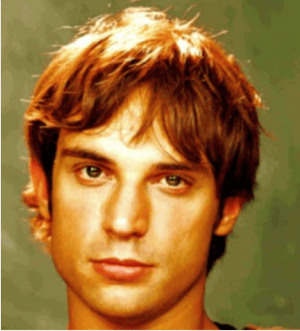
Giovanni Crippa
He made his debut at a very young age in Equus by Peter Shaffer, directed by Marco Sciaccaluga. He has worked with leading Italian directors, including Giorgio De Lullo, Giorgio Albertazzi, Luigi Squarzina, Luca De Fusco, Ruggero Cappuccio, Andrée Ruth Shammah, Giovanni Testori, Giuseppe Patroni Griffi Chérif, Piero Maccarinelli, and Peter Stein. In 1993, he directed his first play, L'angel, from Loi's poem.
Since 1995, he has taken part in major productions at the Teatro di Roma directed by Luca Ronconi. For Ronconi's project conceived for the Turin Olympics in 2006, he was in Troilus and Cressida and The Devil's Mirror. At the Piccolo, again directed by Ronconi, he was among the performers in dozens of productions including I due gemelli veneziani (The Venetian Twins), which won him the UBU Award for Best Supporting Actor. He was directed by Carmelo Rifici in three productions produced by Piccolo Teatro di Milano and in three others produced by LAC. With his sister Maddalena, he performed Passione, from Giovanni Testori's Passio Laetitiae et felicitatis, directed by Daniela Nicosia.
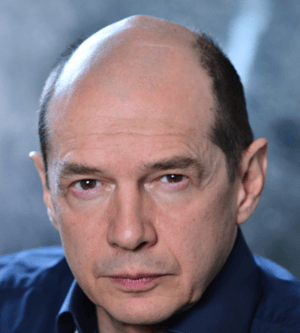
Federica Fracassi
A performer sensitive to new dramaturgies, devoted to the most visionary, ferocious, poetic writings of recent years, from the very beginning she has traced an independent path in the panorama of research theatre. She trained very young at the Scuola d'Arte Drammatica Paolo Grassi in Milan. Together with theatre director Renzo Martinelli, she founded the company Teatro Aperto, then Teatro i in Milan, which has just ended its activity, a real factory of contemporary theatre.
In the theatre, she has worked with Teatro Valdoca, Valerio Binasco, Valter Malosti, Antonio Latella, Luca Micheletti, Sonia Bergamasco, Motus, Fanny & Alexander, Andrea Chiodi and has received numerous awards as best leading actress: Premio Ristori, Premio Olimpici del Teatro, Premio della Critica, Premio Franco Enriquez, Menzione d'onore e Premio Eleonora Duse, Premio Ubu, Premio San Ginesio all'arte dell'attore, Premio Maschere del Teatro Italiano and Premio Hystrio 2021 all'interpretazione.
She made her cinema debut in 2010 directed by Gabriele Salvatores, followed by the direction of Marco Bellocchio, Giorgio Diritti Paolo Virzì, Renato De Maria, Francesca Archibugi Carlo Verdone Marjane Satrapi Paolo Genovese. In 2020 she began a radio career with Rai Radio3, collaborating with Andrea Liberovici on the programmes Maestranze and Maestranze digitali. Also for Radio 3 she is a reader for the programme Ad Alta Voce and for Maturadio.
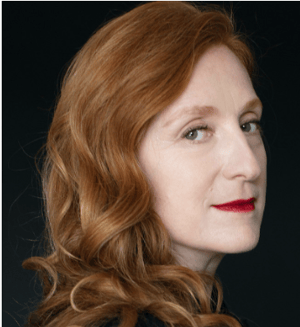
Mariangela Granelli
She graduated as an actress at the Teatro Stabile di Genova and in 2007 won the Premio dell'Associazione Nazionale Critici di Teatro as Best Emerging Actress. She is in the finalist trio at the 2012 UBU Awards as "Best Supporting Actress" for the role of Clytemnestra in Hofmannsthal's Elektra, and at the 2013 UBU Awards as "Best Actress in a Leading Role" for Materials for Muller's Medea, both directed by Carmelo Rifici. She is directed by Rifici in dozens of productions. Over the years she has been directed by Leo Muscato, Andrea Chiodi, Fabrizio Montecchi, Tindaro Granata and Serena Sinigaglia, Giorgio Sangati. In 2006, she attended Luca Ronconi's Advanced Training Course at the Centro Teatrale Santa Cristina and was directed by the Maestro in numerous productions. She works with Andrea Chiodi, Emiliano Masala, Valerio Binasco, Leonardo Lidi, Filippo Dini. In 2020 she receives the ANCT 2020 (National Association of Theatre Critics) Award as Best Actress. From 2021, together with Michele Panella she will direct the Proxima Res Theatre School in Milan.
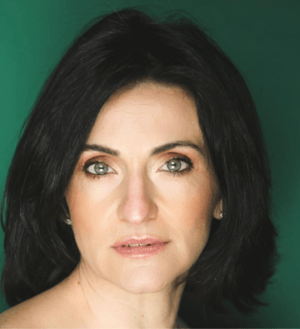
Igor Horvat
Born in Faido, he graduated as a professional actor at the Civica Scuola d'Arte Drammatica Paolo Grassi in Milan in 2000. He has been directed by numerous directors such as Luca Ronconi, Roberto Guicciardini, Gabriele Lavia, Marinella Anaclerio. Giorgio Marini. He works in LAC productions directed by Carmelo Rifici and Andrea Chiodi. Again for the LAC in 2022, he directed Carlo Goldoni's La Bottega del Caffè, with dramaturgical adaptation by Emanuele Aldrovandi. He has also tackled roles in English, French, German and Romanian.
In the field of musical theatre, he participates as an actor in several melologues and comic intermezzos, as well as in the one-act opera Sancta Susanna by Hindemith directed by Maestro Riccardo Muti. In cinema, he appears in Swiss, Italian and Indian feature films, while on television he has taken part in various Italian and Swiss dramas.
He regularly collaborates as an actor and director in numerous radio dramas at RSI Radiotelevisione Svizzera's Rete Due.
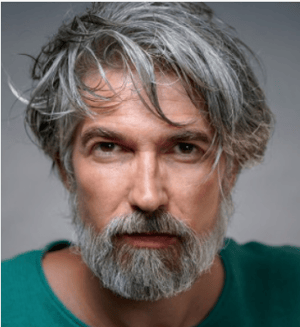
Camilla Semino Favro
After graduating from classical high school, she moved to Milan to attend the Piccolo Teatro acting school directed by Luca Ronconi, where she graduated in 2008.
She worked under Elio De Capitani, Ferdinando Bruni, Gabriele Lavia, Serena Sinigaglia, Mimmo Sorrentino, Massimo De Francovich and Emiliano Bronzino. In 2009 he made his television debut on Rai 1, and in the following years he worked in numerous TV dramas. His film debut took place in 2012 with the film Diaz - Don't Clean Up This Blood by Daniele Vicari. She is in the cast of Nanni Moretti's film Mia Madre. In 2022, alongside her successes in the theatre, she is on the set of Your Honour where she plays the lawyer Ludovica Renda next to Stefano Accorsi and participates, in the role of Marta, in Sopravvissuti, a series resulting from an international co-production by major European television operators including Rai Fiction, ZDF, France Télévisions, Rodeo Drive. In 2023, she is in the cast of A casa tutti bene - La serie directed by Gabriele Muccino.
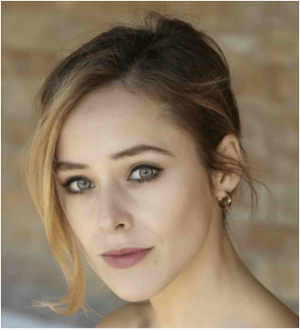
Anahì Traversi
Of Italian, Swiss and Argentine origin, she attended the Faculty of Letters and Philosophy at the University of Milan and Luca Ronconi's Piccolo Teatro School. She specialised for two years under the direction of Federico Tiezzi. In 2012 she was chosen by Riccardo Muti for the new production Sancta Susanna by Paul Hindemith at the Ravenna Festival. Since 2013, she has collaborated with RSI Radiotelevisione Svizzera (drama department) and with the Conservatorio della Svizzera italiana. In 2012, with Fabrizio Rosso, he created the theatre project La extravagancia#0 from Rafael Spregelburd's monologue, a show selected that year at the Schweizer Theatertreffen. Since 2016 she has been working at LAC Lugano Arte e Cultura for several productions; Carmelo Rifici directed her in Gabbiano, Iphigenia liberata and I Cenci; Andrea Novicov in Elektra; Emiliano Masala in Sei personaggi in cerca d'autore; Alan Alpenfelt in Jackie, Leonardo Lidi in Zoo di vetro and Fedra.
Together with other artists, he founded the Treppenwitz Collective, which debuted with L'amore ist nicht une chose for everybody directed by Simon Waldvogel (2019). At the FIT Festival Internazionale del Teatro e della Scena Contemporanea he debuted as director and performer in Amor Fugge Restando (2022).
